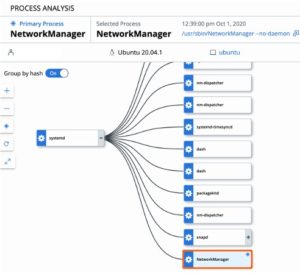Enterprise EDR Expands New Linux Coverage to SUSE, OpenSUSE, Ubuntu, Oracle & Amazon Linux
VMware Carbon Black is pleased to announce an exciting expansion of Linux distribution coverage for Enterprise EDR users on the VMware Carbon Black Cloud platform. In addition to the current support of Windows, macOS, Red Hat Enterprise Linux (RHEL), CentOS, and Oracle, this release further expands Enterprise EDR capabilities to secure SUSE, OpenSUSE, Ubuntu, Amazon Linux, Oracle (both RHCK and UEK kernels), and Generic Linux. Enterprise EDR now also includes support for the latest versions of RHEL and CentOS.
 This latest release for Enterprise EDR customers maximizes the ease, stability, and breadth of Linux coverage going forward. With these enhancements, new support for other Linux distributions can be added much more rapidly and fewer sensor upgrades will be needed as they become available.
This latest release for Enterprise EDR customers maximizes the ease, stability, and breadth of Linux coverage going forward. With these enhancements, new support for other Linux distributions can be added much more rapidly and fewer sensor upgrades will be needed as they become available.
Security professionals and systems administrators need the ability to hunt for threats and analyze activity across all endpoints in their environment, regardless of the operating system. Enterprise EDR is the endpoint detection and response (EDR) solution that enables teams to easily hunt for threats over a continuously collected dataset, as well as rapidly respond to incidents from anywhere in the world.
Delivering customizable detection, threat intelligence, incident response, and threat hunting capabilities from a single lightweight agent across your Linux devices enable critical visibility into activity in your organization’s environment. These high-value, highly targeted Linux devices require continuous monitoring against the most sophisticated attacks to keep your security posture strong and resilient.
To learn more about increasing your visibility into Linux endpoints with VMware Carbon Black, and to view specific supported distributions and kernels, visit our User Exchange.
The post Enterprise EDR Expands New Linux Coverage to SUSE, OpenSUSE, Ubuntu, Oracle & Amazon Linux appeared first on VMware Carbon Black.

